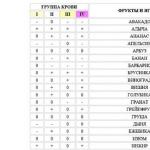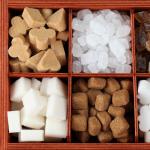Rose hip
This humble plant is a real treasure trove of vitamins and minerals. 100 g of dried rosehip contains 1200 mg of vitamin C, which is 20 times more than in oranges and 30 times more than in lemon. Rose hips are also rich in calcium, iron, potassium and manganese. The setting, decoction or juice of rosehip increases immunity and improves metabolism. In addition, as a powerful antioxidant, it prevents aging.
Persimmon
Persimmons are high in fiber (twice as much as apples), which helps promote bowel function and eliminate toxins. Persimmon improves intestinal microflora, and at the same time improves immunity. Persimmons contain potassium, magnesium and calcium, which are important for heart function; iron, copper and manganese, which help prevent anemia. Lycopene lowers cholesterol levels, and a whole bunch of vitamins strengthens the body's defenses.
Grapefruit
One of the healthiest citrus fruits has an antimicrobial effect and improves metabolism. Grapefruit, thanks to naringin (a bitter substance in the white partitions of this fruit), has fat-burning properties. In terms of the amount of vitamin C, grapefruit is equal to an orange: one fruit contains 50% of the daily intake. Therefore, it will help cope with colds and maintain radiant skin.
Avocado
Literally 50 years ago in Europe, few people had heard of avocados, but today they top the ratings of the healthiest fruits. It contains a record content of polyunsaturated fatty acids for plants, which support the health of the skin and brain tissue, provide optimal water balance and even save from depression. Avocados also have a record content of potassium, phosphorus and magnesium, which are important for the cardiovascular and nervous system. True, this is a very nutritious fruit - it contains about 240 kcal, the same as a serving of rice.
Dried fruits
Previously, it was impossible to get fresh vegetables and fruits in the winter, so every housewife tried to dry as many berries, fruits and vegetables as possible in the summer. They retain almost all the beneficial substances, and, moreover, during the drying process they become more concentrated. Dried fruits, especially dried apricots, figs and prunes, are indispensable for digestion. Also, all dried fruits are rich in minerals, vitamins and dietary fiber.
Red beetroot
Thanks to fiber and organic acids, beets stimulate the intestines and cleanse them of harmful bacteria. It helps relieve the liver of fats, improves the condition of blood vessels and is beneficial for hematopoiesis. It is important that the beneficial properties of beets are only partially destroyed during heat treatment.
Leafy greens
Cabbage, spinach, arugula, lettuce and other leafy vegetables are indispensable in the diet. Their dark green color indicates a high content of valuable substances - in particular, chlorophyll, which reduces the level of inflammation in the body and removes toxins. Leafy vegetables are rich in vitamins A, C, B and K, potassium, magnesium, folic acid and dietary fiber. To support your immune system in winter, you need to consume two servings of leafy vegetables per day.
Fish
During the winter, in the middle and northern latitudes in which we live, almost everyone becomes deficient in vitamin D due to lack of sunlight. This leads to weakened immunity, increased risk of heart disease and brittle bones. The most healthy varieties of fish are salmon (salmon, trout, chum salmon, pink salmon, salmon), cod (cod, hake, pollock, haddock, burbot), perch (mackerel, notothenia, mackerel, tuna) and herring (sardine, herring). In addition to vitamin D, they are high in Omega-3 fatty acids and protein.
Caviar
Sea fish caviar surpasses all products, even the fish itself, in terms of the content of essential Omega-3 acids. At the same time, not only “noble” salmon caviar is useful: among the leaders in Omega-3 content there are also more affordable hake and lumpfish caviar. Also among the best are the caviar of cuttlefish, squid, mackerel and herring. In addition to Omega-3, up to 30% of caviar is protein, which is necessary for the synthesis of collagen (and therefore the beauty and youth of the skin) and the proper functioning of all organs of our body.
Whole grain products
Whole, unprocessed grains are a rich source of complex carbohydrates. They are necessary for normal metabolism. If simple carbohydrates (for example, sweet or starchy foods) are quickly converted into fat deposits, then complex carbohydrates take a long time to break down and help maintain slimness. This is especially important in winter, when we move less and risk gaining extra pounds. Whole grains are also high in fiber, which helps the intestines detoxify the body and strengthens the immune system.
First of all, these are unprocessed cereals (however, these do not include white rice, semolina, wheat and corn cereals) and whole grain bread.
In addition to those listed, there are other products that are suitable for winter nutrition: cranberries, sauerkraut, low-calorie cheeses, cottage cheese and many others. The main thing is that the diet remains balanced: 30% of daily calories come from proteins, 30% from fats, 40% from carbohydrates. And of course, don’t forget about vitamins, minerals and dietary fiber.
Winter is already coming to an end. But it is in early spring that our body desperately needs nutrients, mineral salts and vitamins. After all, it’s quite a long wait until the new harvest. It not only needs to grow, but also needs to be planted.
Therefore, this post will be very helpful.
It must be said that many products are considered useful. From time to time, TOPs of the most ultra-healthy products for the body appear on the Internet. And often they differ from each other. But understand, this does not make them any less useful. It's just that there are actually more than 9, or 10, or 100 of them.
So, healthy foods in winter.
1. Rosehip
It is rose hips, and not lemon or green onions, as our parents told us in childhood, that holds the record for the content of vitamin C, which we so need in winter and now. This vitamin protects us from viruses, including influenza viruses.
But besides this vitamin, rose hips contain magnesium, potassium, phosphorus, and B-2 vitamins. These vitamins and substances strengthen the heart, which so needs support, especially when the weather changes.
To make rose hip tea, you need to grind two tablespoons of dry rose hips in a mortar and pour 1/3 liter of boiling water over it. Leave covered for ten minutes.
But if you want to prepare a real healing infusion, leave it in a thermos overnight.
 2. Beans
2. Beans
Beans help produce interferon in the body, which protects our body from disease. In addition, beans are the protein we need so much. It also contains carbohydrates, but they are processed so slowly by the body that they have virtually no effect on the figure.
Red beans contain vitamin B-6, which helps produce antibodies and boosts immunity.
Beans contain a lot of iron, which increases resistance to infections.
In addition, beans are an excellent antidepressant. And in winter, when we are prone to depression, it is very useful.
3. Seafood 
Any sea fish is rich in zinc and selenium, which strengthen the body's immunity. Seafood - squid, shrimp, mussels - have the same properties.
In addition, everyone has long heard of the very healthy unsaturated fatty acids Omega-6, which are found in seafood and sea fish. These substances relieve us of cholesterol and keep our blood vessels in order. The largest source is the common mackerel or pollock.

4. Vegetable oils
Olive, flaxseed, and sesame oils are rich in vitamin E. This is an antioxidant that slows down the aging process and improves immunity.
5. Beef
Beef, and especially beef liver, is rich in iron, which increases hemoglobin. And hemoglobin in some people has the ability to drop sharply in winter. After all, there are few vegetables in winter.
With normal hemoglobin, the blood is saturated with oxygen and delivers the necessary nutrients to all organs, thereby increasing immunity.
 6. Fermented milk products
6. Fermented milk products
Fermentation processes occur in the intestines, during which toxic substances are formed that weaken the immune system. Approximately 150 grams per day of regular kefir or natural yogurt can cope with these unwanted processes.
In addition, dairy products are a source of vitamin D and calcium. These substances also boost immunity.
7. Red chili pepper 
Who would have thought that this hot red pepper is a healthy winter product? But red pepper dilates blood vessels and increases the tone of the body. It simply warms the body during the cold season.
Red pepper can be added to any dish, or even better, eaten in its pure form. But this is for the most persistent. And know that red pepper burns calories very actively after eating, which means it promotes weight loss.
8. Quail eggs
Quail eggs are very healthy. They contain potassium, phosphorus, and iron. They are especially recommended for vegetarians and people with heavy physical activity. It is best to drink five quail eggs on an empty stomach.
Five small quail eggs equal one chicken egg. And don't be afraid to get infected. Quail eggs are not susceptible to helminthiasis, like chicken eggs.
9. Porridge for breakfast 
By eating porridge for breakfast, you charge your body for the whole day. This is a very useful product in winter. Our diet must include porridge, preferably with water.
The healthiest cereals are oatmeal and buckwheat. In addition to keeping the body in good shape, porridge improves digestion.
Watch a video about how Maslenitsa is celebrated in different places. The song is performed by Vika Tsyganova
The temperature outside continues to drop, winter will come very soon, and you need to prepare your body in advance to face it. Cold weather is the most favorable time for viruses, which the body can resist with the help of vitamins and various nutrients that help strengthen the immune system.
A healthy, balanced diet has a positive effect on your appearance, well-being and, most importantly, on the state of your immune system, which not only improves your mood, but also improves your quality of life. Therefore, the first thing you need to do is review your daily diet.

1. Protein food
In the autumn-winter period, you should definitely include more protein foods in your diet, such as meat and fish, eggs, dairy products, mushrooms, nuts, and legumes. It is better to use lean meat, boiled, steamed or baked in the oven. It is better if it is chicken, turkey, rabbit, lean beef. It is preferable to use fermented milk products.
Various and semi-finished meat products with flavor enhancers (for example, kupaty, dumplings) should be excluded from the diet. The body spends energy processing such food, but does not receive the necessary substances. It is also a harmful food, as it negatively affects the liver and pancreas and pollutes the body.

2. Vegetables and fruits, greens
Fresh, unprocessed fruits and vegetables contain the maximum amount of vitamins. They improve digestion, are rich in vitamins, macro- and microelements - dishes made from vegetables and fruits, diversify and enrich the diet.

Various cereals, as well as whole grain bread, should be present in the daily diet. These are foods rich in complex carbohydrates that saturate the body with the necessary energy during the cold season. These products also have a rich composition of microelements and vitamins.
It brings particular benefits to the body; it not only improves the functioning of the digestive system, but also effectively fights viruses and removes harmful cholesterol. Fiber is found in vegetables, fruits, and some types of cereals.

They contain large quantities of berries; they can be fresh, dried or frozen. It is advisable to replace all sweets with a similar delicacy. It is not only very tasty, but also very healthy.

The rich composition of honey also helps strengthen the immune system, improves well-being and has a positive effect on the functioning of all body systems. It is enough to eat 1 teaspoon of honey a day, just make sure that it is natural.

Nuts will help increase the content of vitamin E and contain polyunsaturated fatty acids. Peanuts, hazelnuts, walnuts and other varieties need to be alternated with each other, they all have a different composition of nutrients, you can replace them with various seeds (pumpkin, sunflower).

7. Tea
Teas based on rosehip, linden, chamomile, currant, raspberry leaf, etc. will not only warm you up, but also support your immune system. In winter, tea with lemon, honey and ginger must be present in the diet.
8. Onions, garlic and radishes
- products that help resist viral diseases. Not everyone likes them, but if possible they should be added in small quantities during cooking.
9. Polyunsaturated fats
- are very important for the functioning of the body; they are found in fatty fish and vegetable oils. If you don’t like fish, you can buy it at the pharmacy; it will not only boost your immunity, but also have a positive effect on the condition of your nails, skin and hair. But vegetable oil can be chosen to suit every taste.
Thanks to a balanced, healthy diet, you can strengthen your immune system, improve your health and forget about colds and viral diseases. The main thing is to correctly create a menu, with the obligatory use of the listed products. The body will thank you for this care with health, beauty and excellent well-being. Be healthy!
Winter has been a favorite time of year for many people since childhood. The smell of tangerines for the New Year, eating snow instead of water and cherished gifts for the New Year. But as we grow older, many of the joys of childhood are unfortunately forgotten. As we grow older, the human body experiences increased sensitivity to colds, dry skin, fatigue and apathy. All this is due to a lack of vitamins in the body.
Where can you get vitamins in winter to feel good?
1. dried fruits.
Dried fruits retain a set of useful vitamins and elements. During the cold season, they can be soaked in water and prepared as uzvar - a vitamin drink made from dried fruits infused in water. Use your favorite fruits for this. These can be dried apples, apricots, strawberries, cherries, grapes (raisins), dates, figs. These fruits can also be added to porridge or eaten in their natural form.
2. herbal tea.
It is known that herbs contain many useful microelements and vitamins that help maintain the immune system and the body in a healthy and holistic state. Mint, chamomile, sea buckthorn, sage, lungwort, etc., prepared for the winter and dried, perfectly replenish the lack of vitamins and will give you a pleasant feeling and energy.
3. mixture of nuts.
Nuts are a source of calcium, potassium, and vitamin E. By consuming a handful of nut mixtures from walnuts, pine nuts, peanuts and almonds, pistachios, cashews, you will compensate for the lack of vitamins and satisfy your hunger. It should be remembered that nuts are not only full of vitamins, but also very high in calories. The recommended serving is 30-70 grams of nuts per day.
4. honey
Honey is a natural storehouse of vitamins and a source of longevity. It has been used since ancient times. There are records that the ancient Greek mathematician Pythagoras and the philosopher Democritus used it and lived for more than 100 years maintaining their sanity and making an invaluable contribution to science and history thanks to honey.
By consuming 50-100 grams of honey daily, you will provide yourself with protection from colds, vitamin deficiency and an energetic mood for the whole day.
5. sound sleep.
The last recommendation has little relevance to our topic, but getting enough sleep directly affects the process of assimilation of the above sources of vitamins. During sleep, the body produces enzymes necessary for their absorption. Don't neglect rest. Try to go to bed at the same time and sleep at the time your body needs.
6. clean water.
Water removes toxins and waste from the body and all useful substances from food are dissolved in it and absorbed into the blood. Our body needs water to absorb beneficial vitamins and minerals. Try to drink 1.5 liters of water per day.
Remember that our body cannot store vitamins, so we need them all year round. By following our recommendations, you will provide your body with a complete set of essential microelements in winter and protect it from the adverse effects of vitamin deficiency. Don't forget that winter is the time of year when vitamins are taken from foods stored in summer. Be healthy and energetic!
Winter is a period of cold weather, snow and vitamin deficiency. Laziness, apathy, lethargy, bad skin and hair - all this is due to a lack of vitamins.
Most people immediately associate the word “vitamins” with a pharmacy. Because at the slightest ailment, people run to pharmacists. But what if the necessary vitamin complex can be obtained by simply eating certain foods? It's much easier and more pleasant than swallowing medications. After all, when the body lacks something, the person’s appearance suffers first of all: hair becomes dull, nails break, complexion deteriorates, teeth crumble and much more. If you don’t replenish the vitamin deficiency in time, it won’t lead to anything good.
Top products needed in winter
1. When cold weather sets in, almost every person can find a berry in their refrigerator such as cranberries. And this is not in vain. Cranberries are a storehouse of vitamin C and PP. Vitamin PP helps absorb ascorbic acid. So this berry is one of the best ways to strengthen the immune system. You can even make cranberry juice and drink it for prevention. It is not only healthy, but also very tasty, just add a little sugar to taste.
In addition to C and PP, it contains iron, iodine, silver, phosphorus, magnesium and potassium. And cranberry juice will not only increase and strengthen the immune system, but will also remove all toxins and salts from the body. You can buy cranberries in almost any store or market, or you can pick them yourself.
2. Greenery. You should dry more herbs in the summer, and in the cold season treat yourself to borscht with dried dill or other dishes with added herbs. Dried herbs contain no less vitamins than fresh ones. And, if you dry them, they will not take up much space, but will bring great benefits.
You can also grow fresh green onions on your windowsill. And you shouldn’t be lazy to do this, because it contains vitamins B1, B2, PP, C. But if green onions are purchased in a store, then it is best to keep them in water for an hour so that all the nitrates that are harmful to humans come out .
3. Vegetables and fruits. You should definitely include carrots, cabbage, onions, beets, radishes, etc. in your menu. Each of these vegetables contains vitamins the body needs. The same applies to fruits. But it is better to buy seasonal fruits.
You shouldn't be afraid of exotic fruits either. For example, kiwi contains a lot of vitamin C, fiber and other equally necessary vitamins, and mango and papaya are also quite useful. Pomegranate and citrus fruits are also rich in vitamin C - they should be a frequent guest in the house during the winter.
4. Sauerkraut. It contains vitamins such as sulfur, zinc, boron, iron, calcium, potassium, sodium, phosphorus, B vitamins, vitamin C. This is much healthier than stewed stew. Due to the fact that when preparing sauerkraut, a fermentation effect occurs, this enriches it with acetic and lactic acids. These organic acids improve digestion. In addition to being healthy, sauerkraut is a very tasty addition to the main dish.

5. Frozen or fruit. They are also a storehouse of vitamins. In the summer it is worth stocking up on various berries (strawberries, raspberries, currants, cherries, etc.) in order to delight your loved ones in winter with healthy tasty compotes, cocktails, fruit jellies and even pies with berries.
6. Ginger. It is a source of vitamins B1, B2, PP, C, potassium, iron, magnesium, calcium. There are many recipes for dishes with ginger. You can even drink tea with it.
7. Green tea. Many people know about the benefits of green tea. In addition to a huge amount of vitamins, it improves immunity and is a strong antioxidant.

There are foods that are better not to eat in winter. These include potato, in which there are no vitamins left by winter.
Vitamins necessary for the prevention of vitamin deficiency
1. Vitamin D. First of all, it is necessary for the absorption of calcium in the body. A lack of calcium results in brittle bones, sparse hair and crumbling teeth. In addition, vitamin D improves skin condition. You can find it in egg yolk, cheese, butter, fish (the largest amount is in sea bass, salmon), liver and dairy products.
2. Vitamin A. Eliminates flaking and dry skin, helps smooth out wrinkles, improves vision. You can find it in liver, meat, fish, milk, carrots, etc.
3. B vitamins. A lack of vitamins in this group is indicated by brittle nails, hair loss and dull color, watery eyes, and cracked lips. To replenish the reserves of vitamins of this group, you should eat peas, rice, buckwheat, nuts, beets, etc.
4. Vitamin C. Particularly relevant in winter. It is found in large quantities in rose hips, cranberries, citrus fruits, kiwi and sauerkraut. Strengthens the immune system, is a powerful antioxidant, and helps produce “happiness hormones.”
5. Vitamin E. It is the most powerful antioxidant, it is also able to stop the aging process, helps supply cells with oxygen and protects them from damage, and protects the body from nervous stress. To replenish your vitamin E supply, you should eat spinach, vegetable oil and green vegetables.
By consuming just a few products every day, you can not worry about the condition of your hair, nails and skin and feel 100%.




